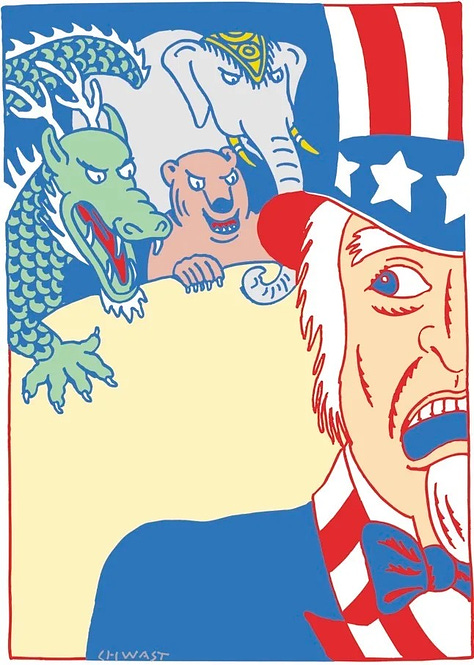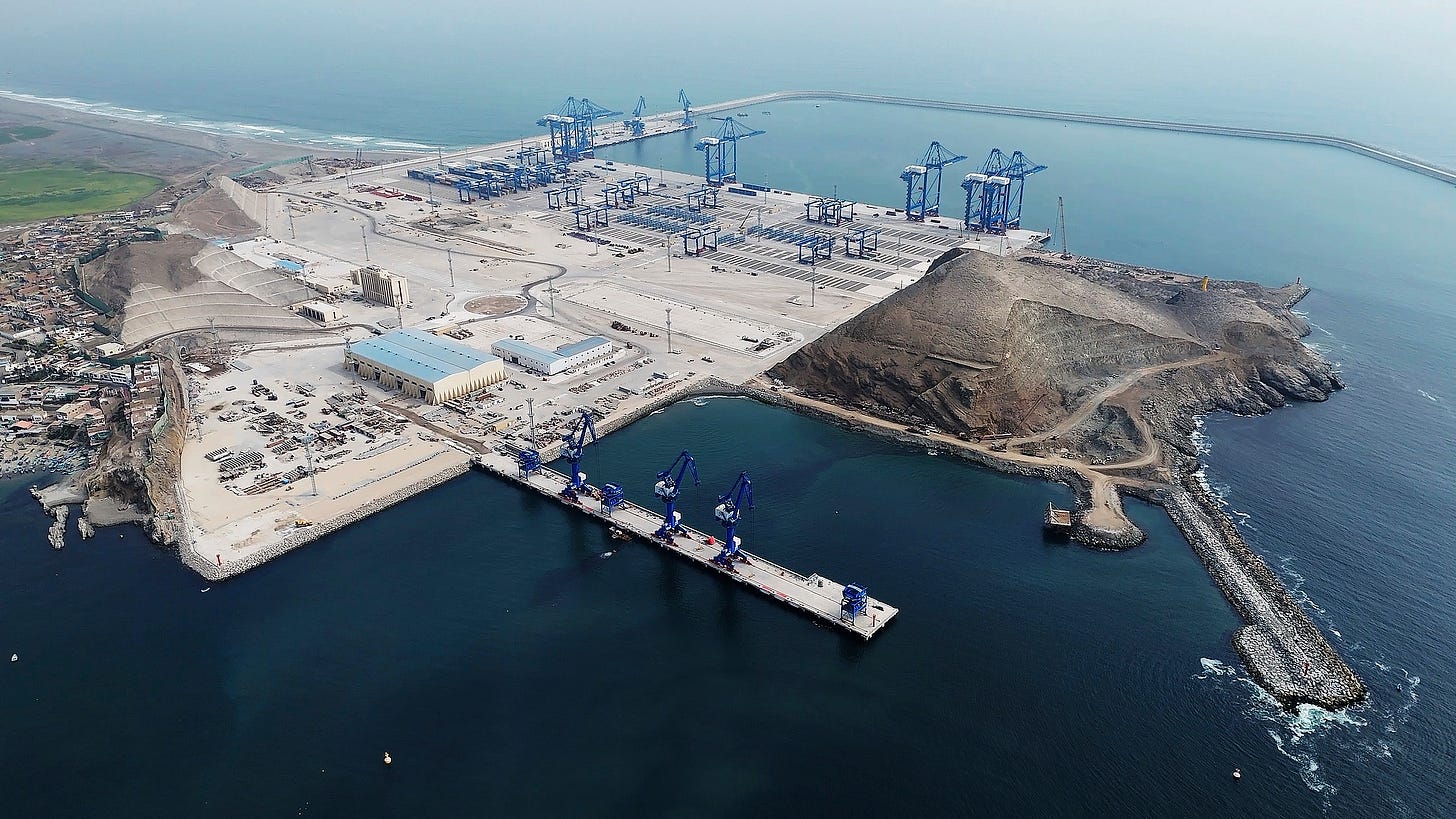Globalization without America?
Warwick Powell on Globalization without America highlights the aspiration of the Global Majority for trade and investment free of malign US interference and dollar weaponisation.
Globalization without America?
By Warwick Powell (CGTN)
Chile lodged an application in June 2024 to join the Regional Comprehensive Economic Partnership (RCEP), along with Sri Lanka and the Hong Kong Special Administrative Region. India is also reconsidering the option of becoming a member. The RCEP is the world's largest free trade agreement, curated through painstaking negotiations by the Association of Southeast Asian Nations over eight years.
Chile's aspiration to join the free trade regime is the first from eastern Pacific. The RCEP has so far focused on the trade dynamics within North and Southeast Asia. With Chile's accession, should it take place, the trade regime will begin to take on an altogether different hue. If India and Sri Lanka become members, the free trade agreement will straddle the Pacific and Indian oceans.
The Asia-East Pacific trade link is soon to gain a significant boost with the opening of the Chancay mega port in Peru. The project is 60 percent owned by China's COSCO Shipping and is the first major trade port facility on the west coast of the South American continent. It will enable trade between South America and Asia to take place directly, without transshipping through either Mexico or the United States (U.S.). It is expected to reduce the shipment time between Brazil and China by 15 days.
These dynamics herald another chapter in global interconnectedness, coming at a time when the U.S. – the principal architect of the prevailing global multilateral trade system, the World Trade Organization (WTO) – continues to crabwalk away from global trade engagement. The first Donald Trump administration refused to ratify the appointment of new judges to the WTO appellate body, rendering formal dispute resolution impossible. Nations have created informal or ad hoc workarounds in the meantime but the backlog of WTO trade disputes has continued to grow. Trump, and the subsequent administration of Joe Biden, have pursued increasingly protectionist policies in the arena of trade, using sanctions, export prohibitions and tariffs as extensions of a so-called national security strategy.
The Biden administration sought to develop a policy towards Southeast Asia that aimed at rejuvenating America's status and influence in the region. It has been derided as half-hearted and unimpressive, failing to live up to the needs and expectations of countries in the region. One of the cornerstones was to enhance trade, but without enabling improved market access to the North American market, the proposal on trade fell flat. The U.S. Congress was in no mood to provide low-cost Southeast Asian producers access to its market, and Biden did not have the political appetite to take this issue on. Trump withdrew the U.S. from the Trans-Pacific Partnership (TPP), and Biden did not join the TPP's successor, the Comprehensive and Progressive Agreement for Trans-Pacific Partnership (CPTPP). The People's Republic of China has submitted an application to join the CPTPP, which remains pending.
The Asia-Pacific Economic Cooperation (APEC) Leaders' Meeting has taken place against this backdrop. At a time when the countries of the Global South are looking for expanded trade and interconnectivity opportunities, the U.S. is more a laggard than a leader. At times, it has pursued policies that has actively undermined the functioning of the prevailing global multilateral trading system. Indeed, through the weaponisation of the US dollar payment system and SWIFT messaging system, the confiscation or freezing of US dollar-denominated assets and the imposition of sanctions, the U.S. has undermined confidence in some of the core institutions of post-World War II economic multilateralism.
It is unlikely that APEC can contribute directly to addressing these problems. The U.S. has in some respects become a rogue state, insofar as the global multilateral system is concerned. Its willingness to "go it alone" – by putting up barriers, weaponization or withdrawing from participation – has created a need for new approaches to be contemplated by other nations.
Efforts to achieve transpacific cooperation on other issues such as climate change are likely to confront similar challenges. The incoming Trump administration is hostile to what Trump himself has described as a "hoax" – namely, climate change. Transnational efforts to coordinate policy responses to drive the transition to clean energy systems are likely to flounder, as the U.S. doubles efforts to develop its shale oil industry.
As the U.S. deals itself out of contributing to the coordination and collaboration challenges of addressing the ambitions for enhanced openness in global trade and a fairer and affordable green transition, globalization itself is likely to be refashioned. The globalization that is unfolding now, in which the U.S. has actively sidelined itself, is ambitious and will require nations to expand on multilateral dialogue rather than reduce it. Consensus is central to the diplomatic ethos that will define the next phase of multilateral institution building.
The 31st APEC Economic Leaders' Meeting may be hampered by the effective disengagement of the U.S., but it will nonetheless bring the leaders of over 30 countries together. And that is no small accomplishment in a world that is fraught with geopolitical tensions.
Editor's note: Warwick Powell is an adjunct professor at the Queensland University of Technology and a senior fellow at the Taihe Institute in Beijing. The article reflects the author's opinions and not necessarily the views of CGTN.
https://news.cgtn.com/news/2024-11-16/Globalization-without-America--1yzBqs97px6/p.html








